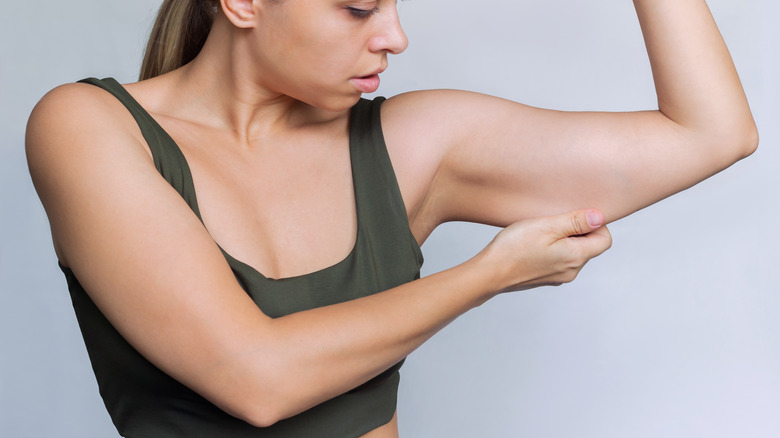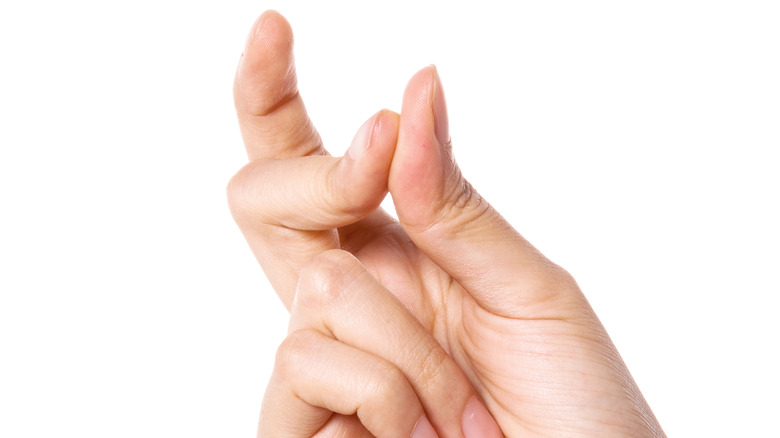A Simple 'Skin Pinch' Test Could Let You Know If You Are Dehydrated
The summer months can be brutal when it comes to hot temperatures and sweating every time you walk outside. According to the National Health Service (NHS), dehydration occurs when your body loses more fluid than it's receiving. This can happen any time you don't consume enough water, especially if you're exposed to the sun, high temperatures, or have been exercising. Dehydration risk also increases if you've had alcohol, you're taking diuretics that lead to frequent urination, or you have diabetes.
There are some hallmark symptoms of dehydration that let you know your body doesn't have enough fluids, including excess thirst, fatigue, confusion, and dizziness (via the Mayo Clinic). Your urine can also be a good way to tell whether you're dehydrated. If you find yourself urinating less frequently, unable to pass urine, or if your urine is dark in color, there's a good chance you may be dehydrated. If you become dehydrated and experience diarrhea or stools that are black in color or contain blood, you'll want to seek immediate medical attention.
How to use the 'skin pinch' test
Before you begin to notice changes in your bathroom habits, there's a trick from TikTok medical professional Dr. Karan Rangarajan that can help you discern if you need to consume more fluids (via Health). The premise of the "skin pinch" test is that you pinch the tip of one of your fingers to see how your skin reacts. If your skin bounces back into place within a few seconds, you're probably drinking enough water. However, if your skin remains indented from the pinch and doesn't immediately return to its normal color and shape, there's a good chance you might be dehydrated. The science behind the "skin pinch" test is that having enough water in your body retains the elasticity of the skin. When your body is deprived of fluids during a state of dehydration, your skin loses both water content and elasticity.
Knowing how to prevent dehydration is extremely important. WebMD recommends consuming at least a cup of water approximately four hours before you intend to exercise. Ideally, you should drink half of a cup of water in 15-minute intervals during exercise or physical activity. It's also smart to keep water within reach throughout the day, like having a water bottle in your bag or a glass of water on your desk while you work. You may be surprised to learn that our bodies also consume fluids from the food we eat, so it's critical that meals are never skipped.


